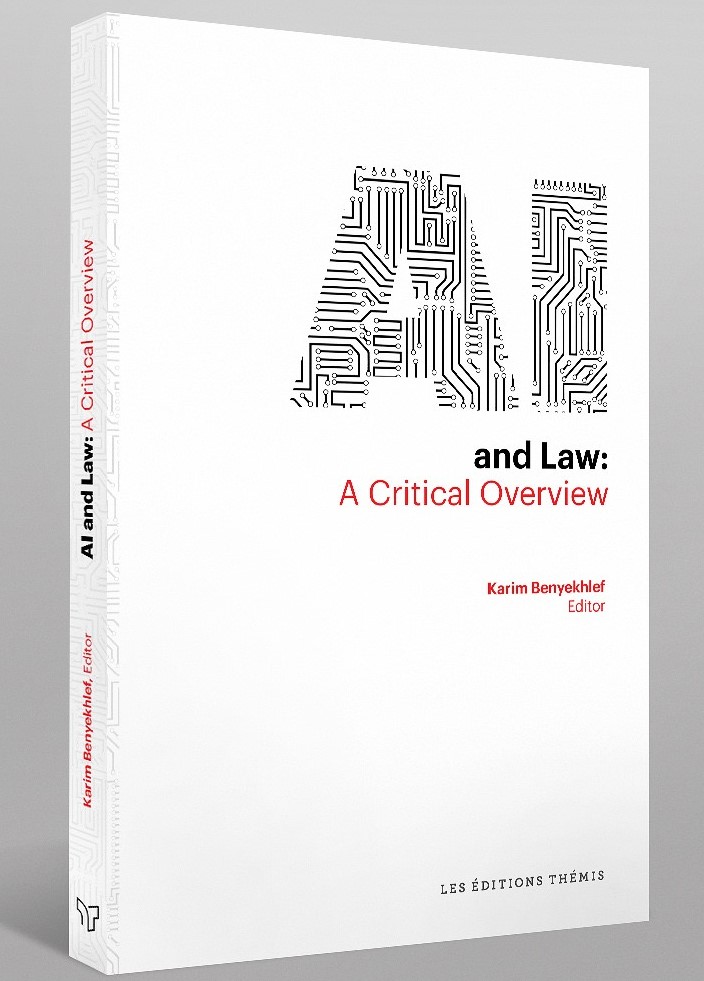Le Laboratoire de cyberjustice et la Chaire LexUM en information juridique sont heureux d’annoncer la publication de l’ouvrage collectif AI and Law: a Critical Overview aux éditions Thémis. Cet ouvrage dirigé par le professeur Karim Benyekhlef, directeur du Laboratoire et titulaire de la Chaire LexUM, est le résultat d’un travail d’une réflexion approfondie et critique sur l’IA et le droit.

This book is the outcome of two scientific events on technocriticism of technoproducts and on providing a panorama of the legal implications of artificial intelligence, themes sharing the goal of identifying, from a diachronic perspective, the socio-legal consequences of technologies and the foundations of their pre-eminence in public discourse. These two aspects of technology are not unrelated since the pre-eminence of a technological narrative of our societies cannot fail to have consequences on law and what law does. In other words, the status our societies give technology and its magical power2 has a contagion effect on law, how law is understood3 and the ways rules are drafted and applied.
Extrait de l’Introduction (Auteur : Karim Benyekhlef)
Table of content
Introduction : AI and Law. A Critical Overview (p. 1) Karim Benyekhlef
Part One AI: A Technological Artefact
A Genealogy of Technocritics (p. 17) François Jarrige
Part Two AI: Ethics and Governance
From Democracy through Law to the Dictatorship of Algorithms? Legal Theory in the Cybernetic Age (p. 47) Stéphane Bernatchez
The Law’s New Language (p.75) Megan Ma
Dangers of Digitizing Due Process (p. 99) Amy J. Schmitz
Part Three AI: Case Studies: From Marketing
and IP to Justice
The Use of Artificial Intelligence by the Marketing Industry: The European Legal Perspective Against Discrimination (p. 141) Ana Maria Corrêa
Content AI: Artificial Intelligence Applications to Intellectual Property Infringement on YouTube (p. 165) Carl “Ott” Lindstrom
Automating Reasoning with Previous Judicial Decisions (p. 189) Hannes Westermann
AI as the Court: Assessing AI Deployment in Civil Cases (p. 213) Erlis Themeli & Stefan Philipsen
Ce contenu a été mis à jour le 14 décembre 2021 à 14 h 24 min.
